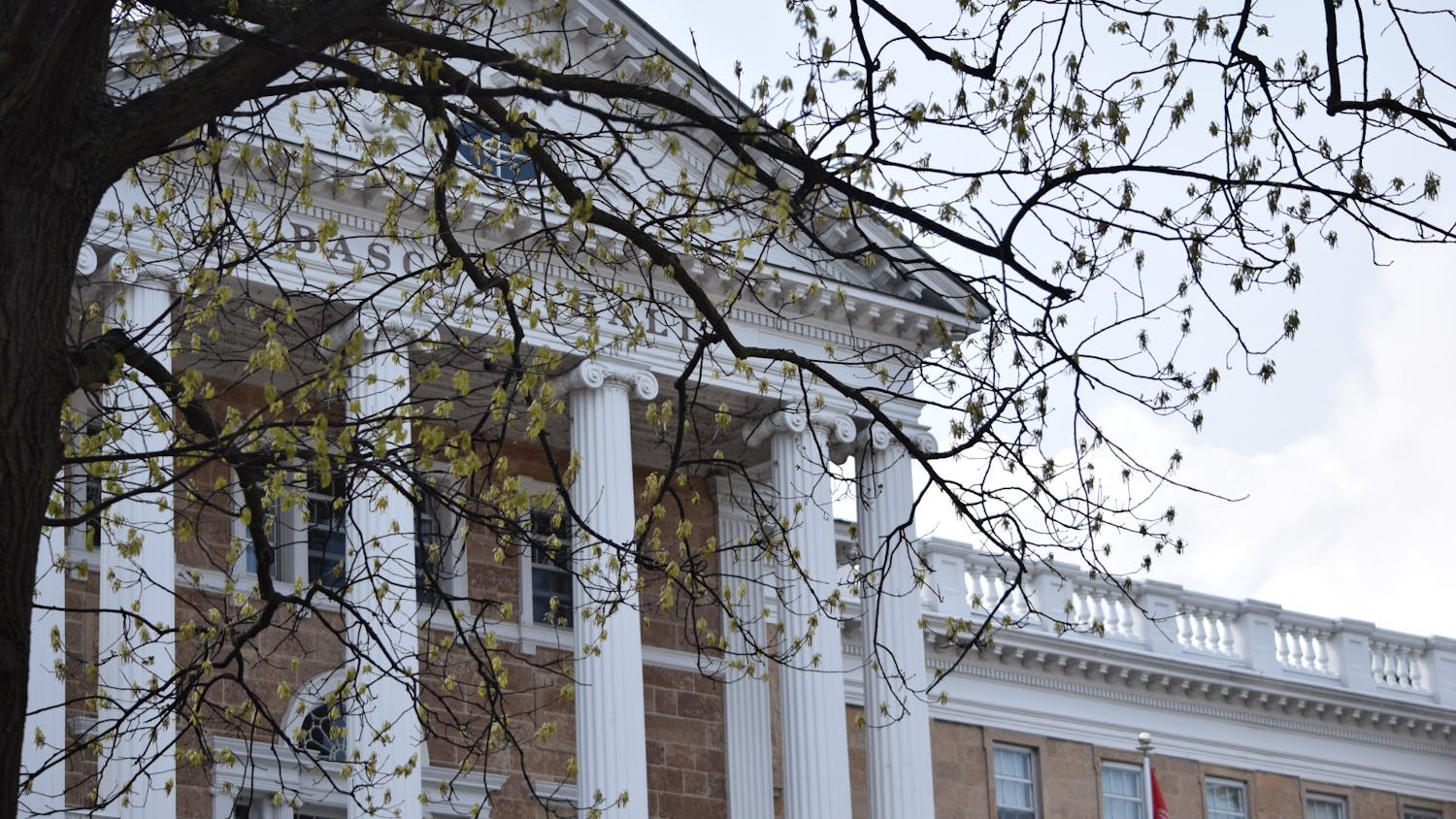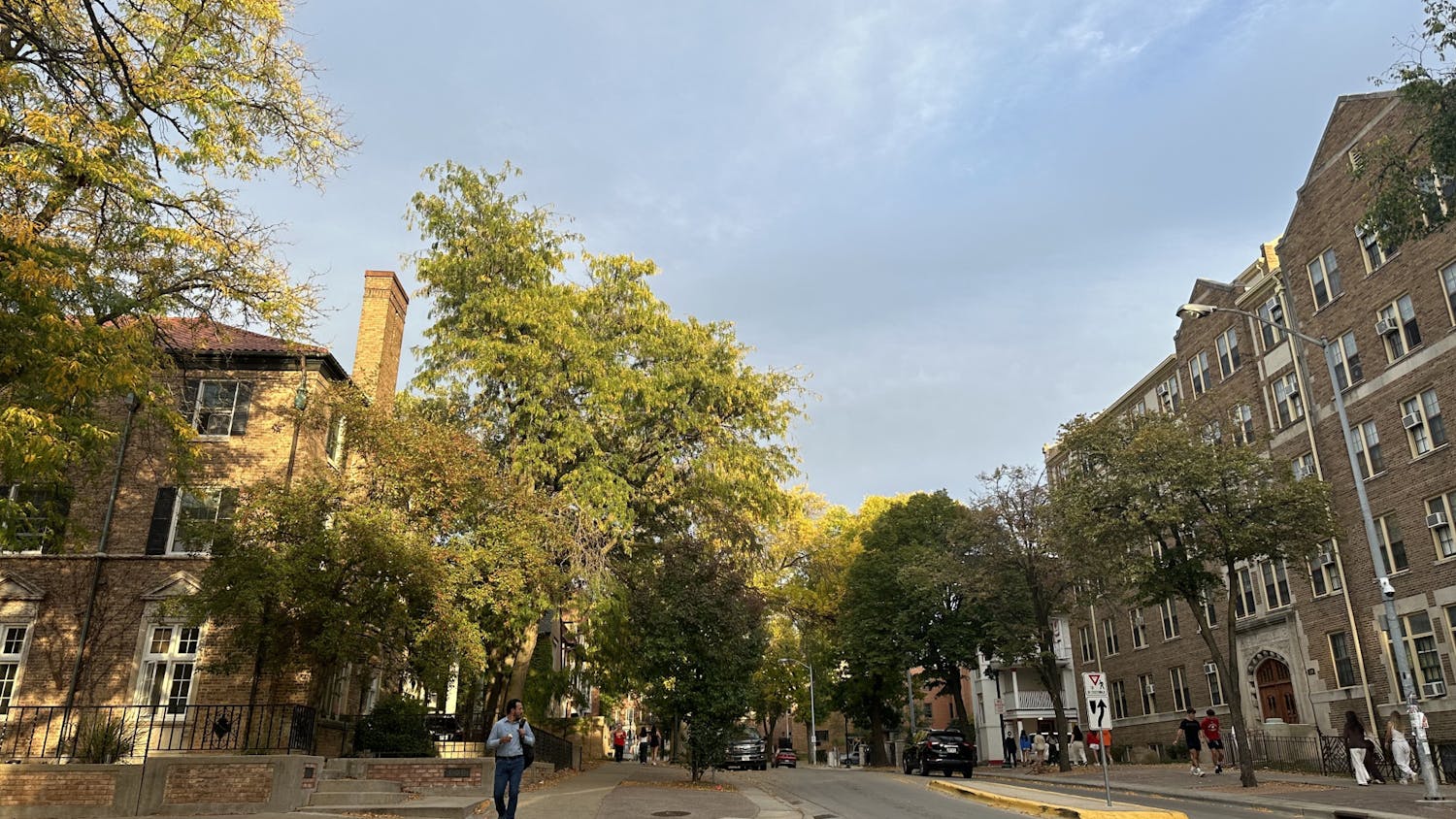Ed Piskor is a 24-year-old cartoonist based out of Pittsburgh, Penn. He attended the prestigious Joe Kubert School of Cartoon and Graphic Art for one year. Not long after, his drawings caught the eye of the renowned graphic novelist Harvey Pekar, who chose Piskor to illustrate for his graphic novel, ""Our Movie Year."" Pekar asked Piskor to work with him again in his latest graphic novel, ""Macedonia,"" slated to come out May 1.
The Daily Cardinal: Mr. Piskor, you've accomplished a lot at such a young age, did you ever believe that opportunities would arise so quickly?
Ed Piskor: Would it be egotistical to say yes? I started working with Harvey Pekar when I was 21 and it was kind of a goal of mine to get paid to draw comic books by the age of 21. I heard a lot of guys that I looked up to—that was about the time they start too.
DC: Were you a big fan of Pekar's before collaborating with him? What were your favorite works of his?
EP: I definitely was a fan of his work. One of the reasons I sent him stuff was because I felt all of the people he worked with didn't do him justice. His quintessential book was called ""Our Cancer Year."" He wrote that with his wife when he was battling cancer. That's a great one. In recent years, he wrote this book called ""The Quitter"" that's a close second.
DC: What was your first collaboration with Pekar? Did you collaborate on anything else?
EP: He wanted to test me out, so I did a four page comic strip for this book called ""Our Movie Year."" He dug it a lot and there was room for a 24 page story so he gave me that to see if I could do a longer piece very fast. So I produced it for him, mixed results in my opinion, but he dug it and that's how he gave me the ""Macedonia"" book.
DC: You illustrated Pekar's latest graphic novel ""Macedonia,"" which is slated to come out early next year. Describe its premise.
EP: The premise is basically this girl Heather, she was a peace and conflict studies student at Berkley, and she'd get into these long philosophical debates with her professors about the inevitability of war. And their stance was that you can't prevent war, it's always going to be in the minds of the people in power. She was vehemently opposed to this ideas and one of the points she was constantly bringing up in these debates was the Macedonia region. The region has all the ingredients of a civil war because of the mix of Muslims and Christians. There hasn't been a war yet so she wanted to explore this idea and how this was possible. She went over to Macedonia to research this information and we decided to produce this graphic novel to explore her findings.
DC: Is there any specific message that Pekar was trying to get out in ""Macedonia?""
EP: I guess the main point was that there is hope and we don't have to be so cynical to say that war is inevitable. There are times when we can get into peaceful means. Right now Macedonia hasn't plunged into war, and it doesn't look they are going to at this point even though there is tension.
DC: Did you get a chance to meet (the protagonist) Heather Roberson? How did she assist you and Pekar in creating Macedonia?
EP: I never got a chance to meet her face to face. We corresponded through email regularly. This book could not be produced the way it has been without her help. Most of the dialogue is words that she has written. Harvey asked her to provide him with a bunch of notes. She took a month longer than he wanted her to but she sent a fully realized script. She actually went back to Macedonia and retraced her steps and provided adequate reference material. She deserves as much of the writing credit as Harvey did.
DC: Did the foreign location of the graphic novel give you more leeway and creativity in your illustrations? Did it pose some challenges?
EP: More challenges if anything. I wanted to show as much respect for the place as I could. There was a lot of architecture that I needed to get right. She was talking about very specific locations. I have some idea that people from ""Macedonia"" are going to see this book and I don't want to let them down.
DC: What was more difficult for you while working on ""Macedonia"": illustrating dialogue, illustrating action or illustrating narration?
EP: Illustrating these conversations is a real challenge because I always have in my mind what the reader is thinking about this stuff and I don't think a reader will stand too many pages of these characters just sitting around and talking back and forth. You have to make it interesting in some way. Hopefully we've accomplished that. We're asking a lot from our readers to have an open attitude about these things and maybe experience this stuff on their own and think about what goes on in this area.
DC: How do you classify ""Macedonia"" in the comics world? It is generally a nonfiction comic, but how does it differ (if it differs at all) from other nonfiction comics?
EP: I wonder if this will fall under the bracket of what they call a travelogue, where people keep these journals and they expand upon them. It's a biographical piece which is different for Harvey since he usually writes autobiographical comics.
DC: What makes ""Macedonia"" unique from other graphic novels? What makes it something that people will want to pick up and buy from a bookstore?
EP: Historically the people that read these kinds of books are pretty bright. A lot of stuff that is on the shelves isn't quite as dense as our book is, and I mean dense in a very good way. There's a lot of very interesting dialogue that raises a lot of questions and gets a lot of ideas across. There's a lot going on in a very short amount of pages. Relatively, I think readers are getting more from our book than the average graphic novel just off the shelves.
—Interview conducted by Eunice Abraham





